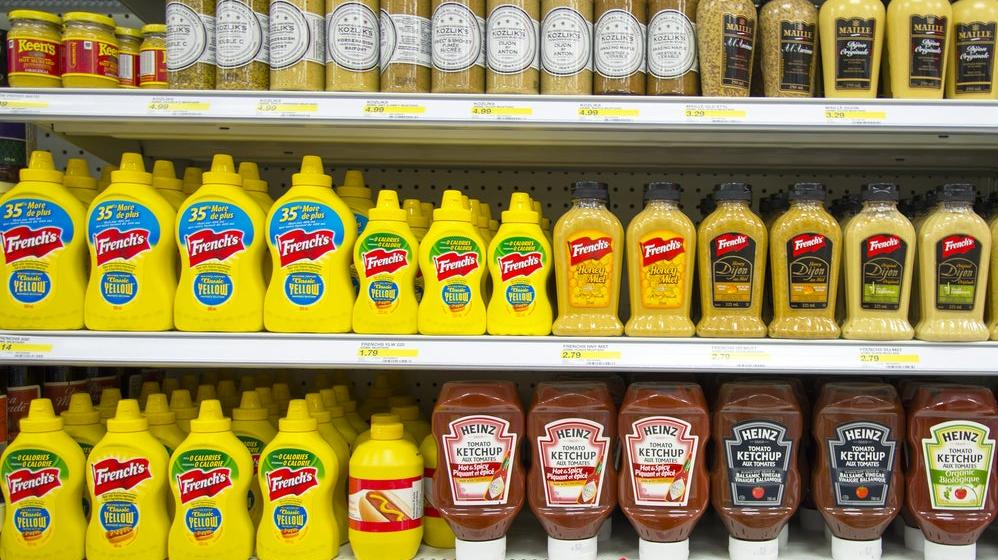How To Stop Shrinkflation From Killing Your Grocery Budget
Short-term tips for eating well without breaking the bank.
Recently, CNBC reported that the consumer price index, which measures average change in consumer prices over time, has risen 8.6% in May for the past year, the highest it's been since 1981. We've all heard the terms being thrown around the news, on social media, in chat rooms, and in real-life conversations: both inflation and its quieter cousin shrinkflation are here, and they're not going away any time soon.
What is shrinkflation?
Shrinkflation is a solution to stabilize the price a consumer pays for a product by reducing the size of that product. The idea of companies downsizing products to mitigate rising production costs isn't new, but the term "shrinkflation" assumes that the average shopper won't be bothered by small unit changes. After all, who looks at net weights in packages anyway?
Turns out, a lot of people do. The subreddit r/shrinkflation is alive and active. Every day, people post descriptions of items, many coupled with images. The net weight of packaged products such as Kleenex tissues, boxed cereal, and laundry detergent have all gone down while prices for those items have stayed the same.
The data does not lie. While prices for fresh fruits and vegetables, such as bananas, oranges, and tomatoes have seen only small, incremental changes (as noted in this chart from the U.S. Bureau of Labor Statistics), prices for utilities and gas have seen the opposite, rising much faster than expected.
Like many, I'm feeling the pinch, but I'm also aware that this is not forever. Rather than starving myself or going for the cheap, nutrient-dense foods, I've decided to seek out alternative solutions in the short term to help me maintain a similar diet and protect my wallet. Here are three things you can do right now.
Do a complete audit of your pantry
I use the term "pantry" lightly because not everyone has one. For the purposes of this exercise, consider any place that you use to store extra food—the freezer, garage, bedroom, living room, or elsewhere. Take some time on a weekend afternoon and take out everything in your pantry. Yes, everything. Write down any item that you have multiples of. You'll likely discover that many are still usable, half-opened or forgotten about.
Write yourself a note to use up all the opened and unopened packages before buying more. You'll be amazed at how much you already have simply by taking stock of what you can't see every day. I know I was.
Make meals that you can freeze
In my house, we have an extra freezer in the garage. We use this to store extra items that we purchased in bulk at Costco or whenever items go on sale. Even though the freezer stores a healthy number of frozen items, my regular freezer serves as a place where we store an abundance of ready-to-use items, including premade soup stocks and stews (which are instant hits), certain meats including shredded chicken and pulled pork, mashed potatoes, cookie dough, bags of pre-seasoned salmon fillets, turkey meatballs, pasta sauces, and pasta, all of which are quick to defrost and easy to make into an excellent meal in the slow cooker.
Taking advantage of any sales in the moment, then freezing whatever you can't use until later, is one way to combat rising grocery prices.
Participate in community bulk buy
Bulk buy doesn't have to mean buying Costco in bulk and taking everything home to your pantry. Sometimes we simply don't have the space to store everything. A great way to save money and get the most bang for your buck is to employ people around you: friends, family, neighbors, colleagues, or anyone with similar diets and/or food preferences.
Get together in a group chat and make a list of essential items that you need for your own limited space, pool the money together, and designate one person to make the purchase (or if you're up for it, go shopping together!). Then you can all split the bounty afterwards. This way, everyone gets what they need and nothing more. It's a great way to save money and not let anything go to waste, thereby eliminating the chance of having to do a pantry audit in the first place.
